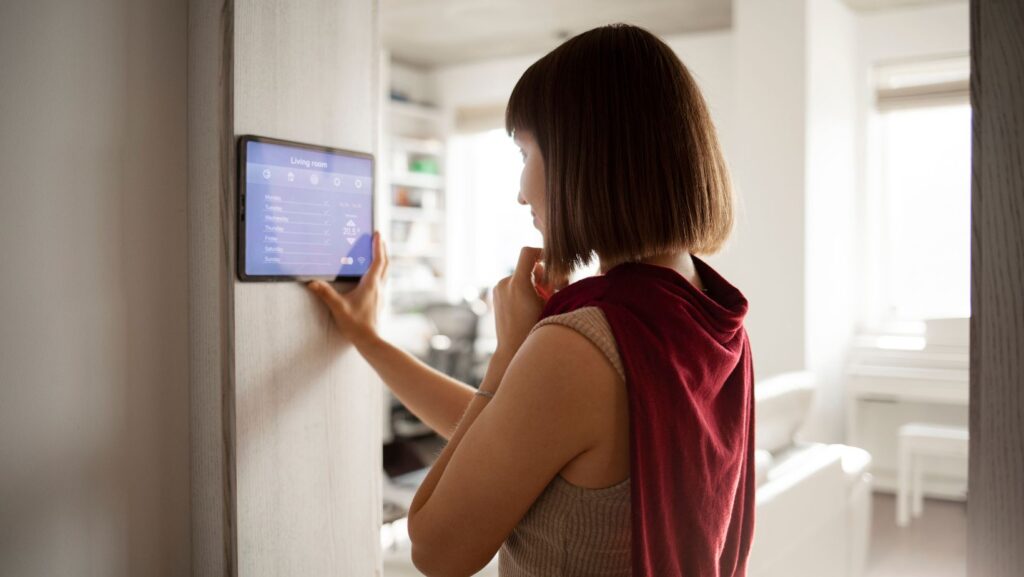You’re planning to build a custom home, but have you considered how to make it future-proof? This article explores the world of smart home technology and how it can enhance your living space for years to come. From energy efficiency to enhanced security, we’ll show you how to integrate cutting-edge tech into your dream home, ensuring it stays modern and functional well into the future.
The concept of a “smart home” has evolved rapidly in recent years, transforming from a luxury novelty to an essential aspect of modern living. As technology continues to advance at breakneck speed, homeowners are increasingly looking for ways to future-proof their living spaces.
Integrating smart technology into your custom home design isn’t just about keeping up with the latest trends; it’s about creating a living environment that adapts to your needs, saves energy, and enhances your quality of life for years to come.
The Foundation of a Smart Home
Before diving into specific technologies, it’s crucial to establish a solid foundation for your smart home. This begins with a robust and reliable network infrastructure. When building custom homes, it’s essential to consider the placement of Wi-Fi routers, ethernet ports and even mesh network systems to ensure seamless connectivity throughout your living space.
A well-planned network will support the growing number of connected devices in your home, from smart thermostats to voice-controlled assistants.
Energy Efficiency: The Smart Way to Save
One of the most significant benefits of smart home technology is its potential for energy savings. Smart thermostats, like the Nest or Ecobee, learn your habits and adjust temperature settings accordingly, optimizing comfort while reducing energy consumption.

Smart lighting systems, such as Philips Hue or Lutron, allow for precise control over your home’s illumination, automatically dimming or turning off lights when rooms are unoccupied.
Enhancing Home Security with Smart Tech
Home security has come a long way from traditional alarm systems. Now, remote security monitoring solutions like smart security cameras, video doorbells, and smart locks offer real-time control of access points in your home.
These devices can be integrated with your smartphone, allowing you to keep an eye on your property from anywhere in the world. Some systems even incorporate AI technology to distinguish between familiar faces and potential intruders, providing an extra layer of security.
The Heart of the Smart Home: Voice Control
Voice-activated assistants like Amazon’s Alexa, Google Assistant, or Apple’s Siri have become the central hub for many smart homes. These devices can control various aspects of your home environment, from adjusting the thermostat to playing music or even ordering groceries.
When designing your custom home, consider incorporating built-in speakers or display panels that seamlessly integrate with your chosen voice assistant platform.
From Kitchen to Laundry Room: The Future Is Now
Smart appliances are revolutionizing how we handle daily chores. Refrigerators with built-in cameras allow you to check their contents remotely, while smart ovens can be preheated on your way home from work.

In the laundry room, smart washers and dryers can notify you when a cycle is complete and even order detergent when supplies run low. These innovations not only save time but also contribute to a more efficient and organized household.
The Importance of Scalability and Integration
When future-proofing your custom home with smart technology, it’s crucial to choose systems and devices that are scalable and can integrate with other platforms.
Look for products that support open standards like Zigbee or Z-Wave, which allow for easier integration between different brands and devices. This approach ensures that your smart home can evolve with new technologies without requiring a complete overhaul.
As we look to the future, the possibilities for smart home technology seem endless. From AI-powered home assistants to advanced energy management systems, the homes of tomorrow will be more intelligent, efficient, and responsive to our needs than ever before.
By incorporating smart technology into your custom home design today, you’re not just building a house; you’re creating a living space that will adapt and grow with you for years to come.
